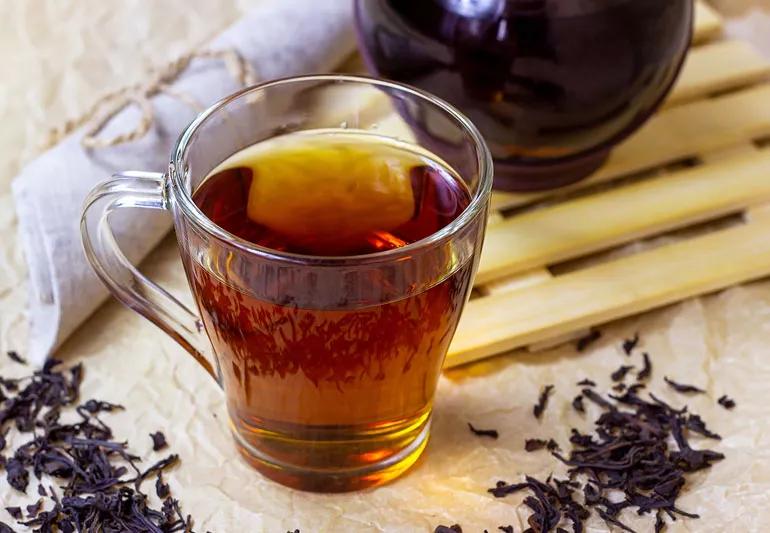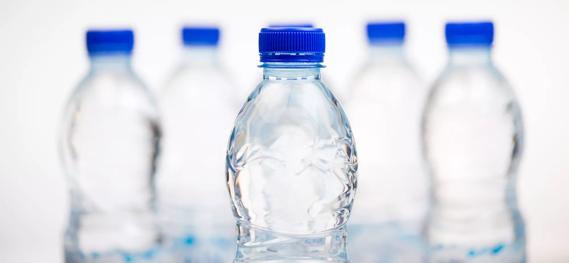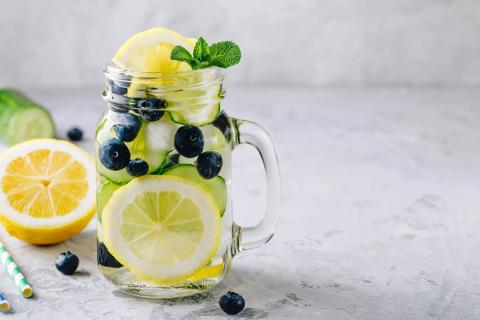Here's what to eat, drink and do to get rid of excess water in your body

In the moment, having a delicious meal and drinks is one of life’s great pleasures. However, the aftermath of a gigantic dinner often doesn’t feel quite so good. You could retain water from overdoing it on salt and feel bloated and sluggish.
Advertisement
Cleveland Clinic is a non-profit academic medical center. Advertising on our site helps support our mission. We do not endorse non-Cleveland Clinic products or services. Policy
It might be tempting to find a quick way to shed that excess water by reaching for an over-the-counter medicine or looking up the best natural diuretics. While the latter can be a good solution, registered dietitian Julia Zumpano, RD, LD, says you need to be smart about what you’re doing to reduce the bloat.
Diuretics are pretty simple: They help your body get rid of excess accumulated water and salt. How do they achieve this? By making you pee more.
Diuretics are helpful if you have a medical condition that makes you retain water, such as kidney failure or congestive heart failure. In fact, they are also often included in medications used to treat high blood pressure.
Although diuretics commonly come in the form of water pills, there are both foods and activities considered to be natural diuretics.
Water-based fruits and veggies don’t just provide vitamins and minerals — they can also be good natural diuretics. Zumpano recommends adding these diuretic foods into your diet:
Certain herbs — including parsley and dandelion — are considered natural diuretics. The trick is how you use them, Zumpano says. “Avoid taking medications or herbs in a concentrated form if your need for releasing fluid retention is not disease-based, medication-based or directed by a doctor,” she says. “Using diuretic medications or herbs without proper advice from a certified healthcare professional is definitely not recommended.”
Advertisement
The reason for this comes down to science — or lack thereof. “Herbs are not regulated or researched very well,” Zumpano says. “Generally, it’s hard to manage and to figure out a proper dose because there aren’t enough clinical trials to show how much you should be really taking.” Some herbs could interact badly with medications you’re on and cause health issues, she adds. “That’s a big one. You want to be careful.”
Zumpano says the same guidance goes for using berries commonly advertised as diuretics, such as hawthorn and juniper.
However, she notes you can get diuretic effects by sprinkling parsley in a salad, rice, a sauce, or soup, or adding the herb to a smoothie or juice. “Incorporate herbs into your diet via a meal, not in a pill or liquid concentrated form,” Zumpano says. Hibiscus tea, which is herbal and doesn’t have caffeine, is another good option.
Caffeine is a natural diuretic, which is lucky for people who enjoy coffee and tea. Zumpano says black and green teas are best if you’re looking for diuretic drinks, not least because you know how much you’re ingesting. “Teas are a little easier to regulate,” Zumpano says. “You have a teabag. You’re not taking a pill or a vitamin or concentrated form of it. You’re drinking a glass of piping hot tea or iced tea.”
Exercise is one of the easier natural diuretics, since getting your heart rate up will help circulate whatever fluid you have built up. “It’s tremendously helpful to move that fluid around in your body,” Zumpano says.
Weight loss is another not-so-surprising natural diuretic — after all, about 60% of your body is water, so losing weight is one way to reduce fluid retention.
If you’re trying to get healthy enough so you don’t need diuretic medications, but want to resolve some of your fluid retention naturally, reduce your salt intake. “If you’re eating a high-salt diet, you’re going to retain a lot more fluid,” Zumpano says. “Naturally eliminating fluids with healthy foods, exercise and reducing salt intake is very safe.” Being mindful of liquids that may be secretly full of salt, like soda, is also key.
If you’ve overdone it with the food and drink, Zumpano says changing your lifestyle for a few days (or upping your time at the gym) can help reduce the fluid you’re retaining. “There is no harm in consuming foods and beverages that are natural diuretics, especially as a part of a whole food-based eating plan, along with decreasing salt and increasing water intake and increasing your movement.”
Advertisement
She does recommend being careful about not overdoing it. For example, if you excrete too much water from your body, your electrolyte levels could be thrown out of balance, which can cause you to feel poorly or could even lead to further health concerns. “You do want to be careful with that,” Zumpano says. “That’s why you need to eat a balanced diet, to replenish some of those electrolyte losses.”
Starting to take water pills or another diuretic when you don’t need one also isn’t a good idea. “You should not be taking a diuretic if you’re not retaining water,” says Zumpano. “Only take a diuretic if it’s prescribed by a healthcare provider.”
Zumpano also says you should seek medical attention if you are noticing fluid retention on a consistent basis.
“If you experience bloating or edema that has been persistent — and it’s not just circumstantial, like associated near your menstrual cycle or after a heavy weekend of eating — definitely see a healthcare provider. It’s advised to have a proper health screening and your blood pressure checked. There may be an underlying issue that needs to be addressed.”
Advertisement
Learn more about our editorial process.
Advertisement

Consumption needs vary based on activity, weather, metabolism and other factors

A glass of lemon water in the morning can help with digestion and boost vitamin C levels, and may even help get you into a better routine

Mold and bacteria in your reusable water bottle can cause health issues like infections, respiratory issues and allergic reactions

Sitting in the dry heat may help reduce stress, improve heart health and relieve pain

Adding salt to your water isn’t going to have measurable benefits — but there may be plenty of downsides

Drinking untreated water can have dangerous consequences, like bacterial infections

Although it adds to your hydration, this water may be pushing you over the limit of the daily recommended dosage of caffeine

If you’re trying to drink less soda or fewer sugary drinks, flavored water can be a delicious and healthy alternative

Wearing a scarf, adjusting your outdoor activities and following your asthma treatment plan can help limit breathing problems

Your diet in the weeks, days and hours ahead of your race can power you to the finish line

When someone guilt trips you, they’re using emotionally manipulative behavior to try to get you to act a certain way